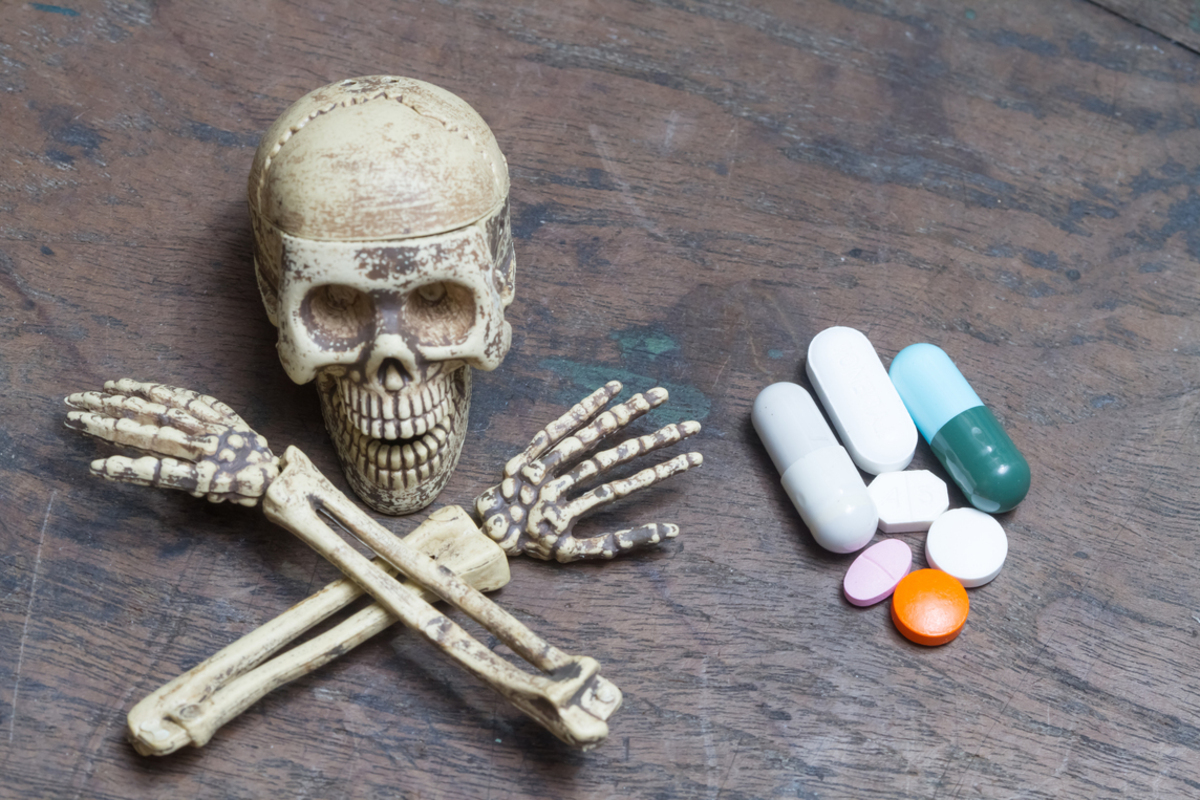Over 300 children have to go to the ER because they've been poisoned every day in the United States alone — and they're not all cases in which a child has ingested something that should clearly never have been anywhere near them by any means. Common items found in almost all households can be dangerous and even, for two out of those 300 daily cases, fatal.

Any liquid, gas, or solid that can do acute damage to a person's health or slowly accumulate to have harmful effects can be considered a poison. While most people will probably think of substances a child ingests first, poisons can also be inhaled, absorbed through the skin, or injected. Children between the ages of 12 months and five years, who don't yet understand what's safe and what isn't but who are always exploring and seeking new knowledge, have the higher risk of being poisoned.
A list of common poisons probably lurking in your home
While data from pediatric emergency rooms reassuringly reveals that over 73 percent of child poisoning cases were accidental, the rest of the data may inspire you to do a "treasure hunt — poison edition" around your home as soon as you're done reading it. Drugs are the most common cause of acute poisoning in children, at 48.4 percent. These include:
- Tricyclic antidepressants (11.7 percent of cases).
- Methylphenidate, better known under the brand name Ritalin (17.6 percent of cases)
- Pain killers (14.7 percent of cases).
Corrosive substances take up second place — they represent 23.1 percent of child poisoning cases. While the study presenting this data doesn't give examples, there are rather a few. Anything from dishwashing detergent and battery acid to wet cement can fall into this category.
Alcohol, insecticides, and plants are also on the list of toxic substances that send kids to the ER every year.
Almost every home harbors substances that can lead to acute poisoning if used in the wrong way. See how many you can tick off:
- Air fresheners.
- Alcoholic beverages.
- Nail polish and nail polish remover.
- Shaving cream.
- Shampoo.
- Those hydrating balls sometimes used for plants.
- Moth balls (which are generally bad news, really).
- Mouthwash.
- Antiseptics.
- Perfume.
- Cigarettes and e-cigarette fluids.
- Baby powder.
- Hair dye.
- Antifreeze.
- Batteries.
- Lighter fluid.
- Petrol.
- Paint thinner.
- Some household plants.
- Rat poison.
- "Roach hotels".
This is not an exhaustive list. Being a parent is tough!
How can you keep potentially poisonous items in your home, but away from your child?
- Store medications in their original packaging. Keep them well away from young children. This is common sense and all thinking parents will believe they have it under control, but things do slip our minds sometimes. Many people have painkillers in their pockets, handbags, briefcases, or in plastic bags they bring home from the pharmacy. Watch out for medications you keep handy because you use them frequently, like insulin or asthma inhalers, as well — these are special hazards if you don't have kids but your friends and relatives do, because you're maybe less likely to consider the potential hazard when you visit a home with children or children visit your home. Do not forget that nutritional supplements can be hazardous, too.
- Store chemicals high up and out of kids' reach — also away from places they could reach by climbing. Locks on cabinets are often in order. Pay special attention when you're actively using a chemical, like a toilet cleaner, as it only takes a few seconds for a child to ingest something.
- Garages are usually full of potential poisons. Consider keeping young children out of them altogether. The same is often true for laundry rooms.
- So far, so good? Also look out for things that don't immediately strike you as dangerous. Makeup, perfume, air fresheners, art supplies, fake snow, deodorant, and even vinegar can fall into this category. Alcohol and cigarettes can be incredibly risky as well.
Parents should always be vigilant and keep tabs on their children's mental health. When you notice signs of depression or suicidal thoughts, immediately get in touch with a medical professional. In the meantime, also keep substances and other objects with which they could harm themselves way out of reach.
What should you do when a child has been exposed to a potential poison?
Call poison control. In the US, the number is 1-800-222-1222 — and it's a good idea to store that number in your phone. If you do not have such a hotline where you live, call 911 to ask for advice. Do not automatically encourage your child to vomit, as this can sometimes make things worse. Wait for professional instructions, but get them quickly! If you heard for the ER, take the package of the substance your child was exposed to with you.
- Photo courtesy of SteadyHealth
- www.cdc.gov/safechild/poisoning/index.html
- www.chop.edu/health-resources/poisoning-primer-parents-and-educators
- https://www.ncbi.nlm.nih.gov/pmc/articles/PMC3446134/
- www.poison.org/poison-prevention-tips-by-age/toddler


Your thoughts on this